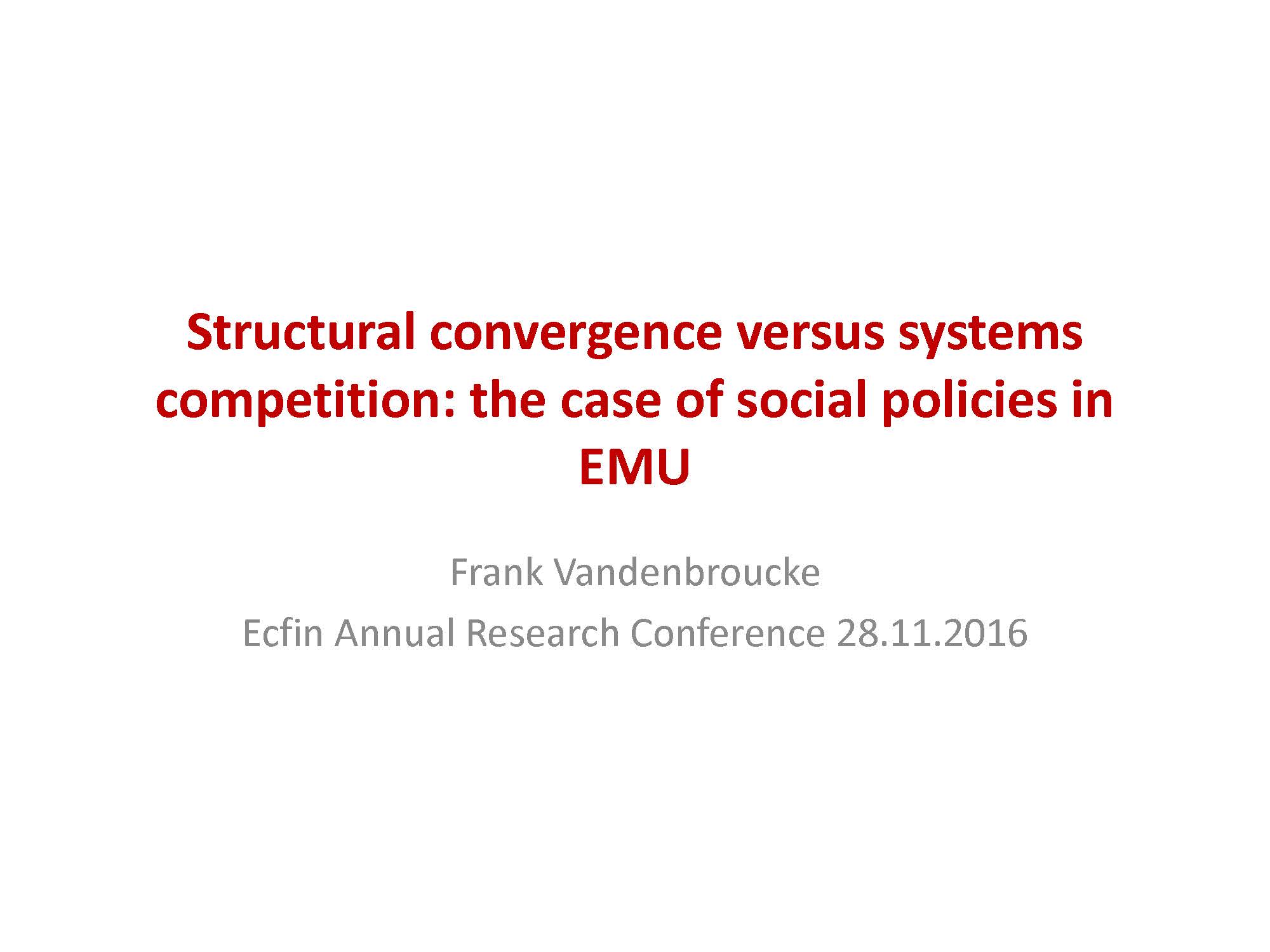 Download presentation
Download presentation
Ecfin_fellowship_conference_28.11.2016_Structural-convergence-versus-systems-competition
Structural convergence versus systems
competition: the case of social policies in EMU
Frank Vandenbroucke
Ecfin Annual Research Conference 28.11.2016
• What is the extent of ‘social diversity’ (diversity in social models) that can be accommodated in EMU?
• Why a ‘Eurozone Pillar of Social Rights’?
Arguments for ‘structural social convergence’ vs. ‘social systems competition’
i. Requirements w.r.t. economic symmetry in a monetary union
ii. Requirements w.r.t. labour market flexibility and worker mobility in a monetary union;
iii. Consequences of risk-sharing solutions in the context of a monetary union;
iv. Externalities of national policies in the context of a monetary union;
v. Subsidiarity and the national/regional/local capacity for policy innovation;
vi. The need for mutual trust between Member States
De Grauwe and Ji, Flexibility and Stability. A difficult trade-off in the Eurozone, CEPS Working Document 422, April 2016
Permanent shocks dominate Business cycle dominates
De Grauwe and Ji, Flexibility and Stability. A difficult trade-off in the Eurozone, CEPS Working Document 422, April 2016
• Structural social convergence linked to requirements of symmetry
• Coordination of wage policies & capacity to deliver
• Structural social convergence linked to risk-sharing (to mitigate institutional moral hazard in the case of risk-sharing):
• Minimum requirements w.r.t. ‘stabilisation quality’ of unemployment regulation;
• Minimum requirements w.r.t. ‘activation quality’ of unemployment regulation.
• Structural social convergence linked to flexibility as ‘adaptability’ to permanent shocks
Dolls, Fuest, Peichl, Automatic Stabilisation and Discretionary Fiscal Policy in the financial crisis, 2012.
